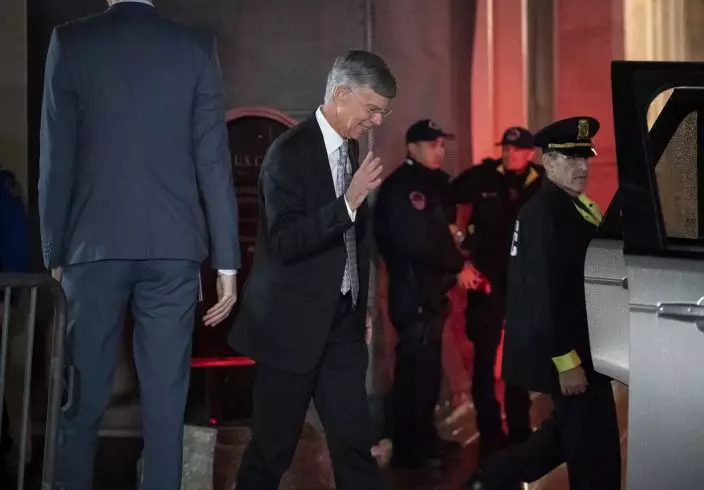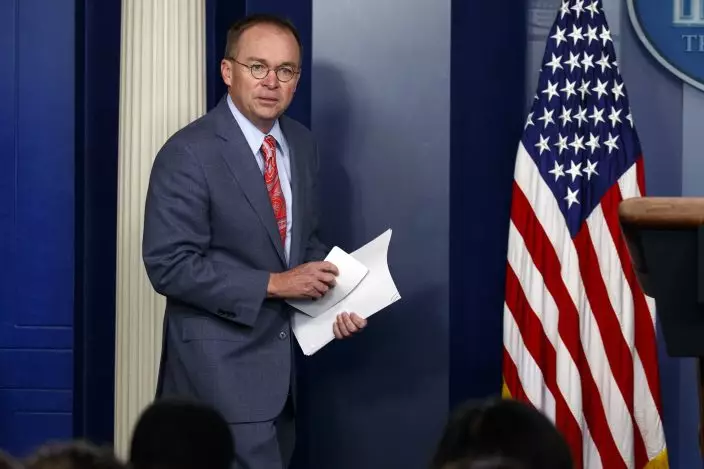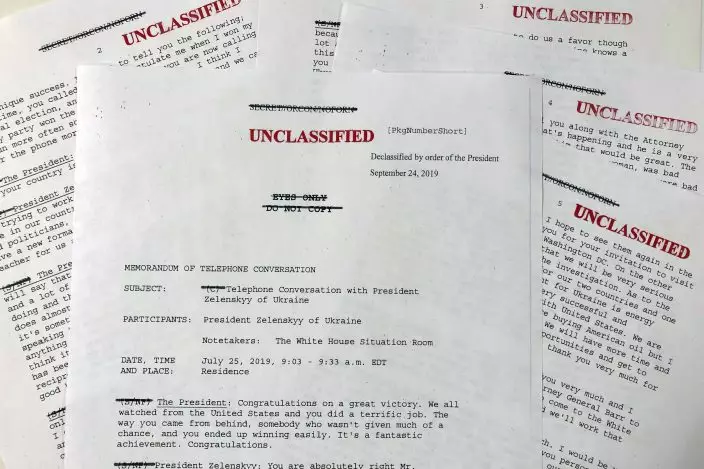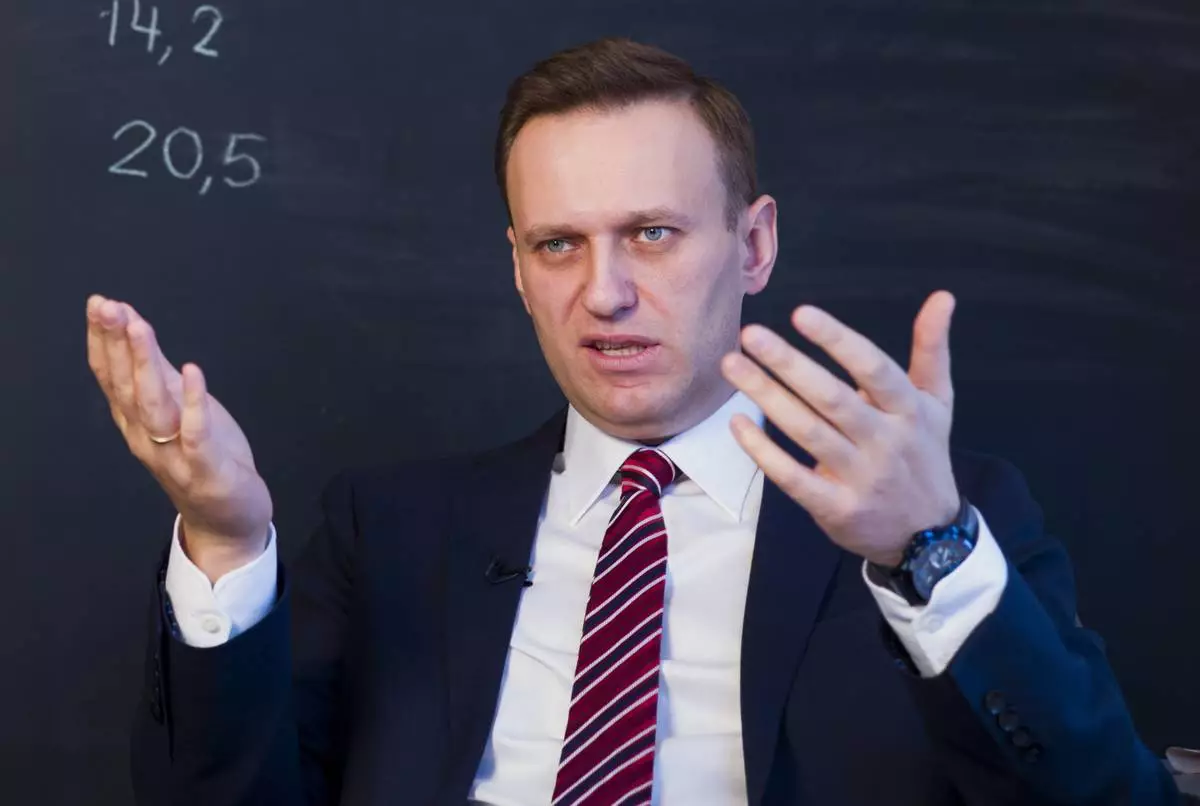The military assistance for Ukraine that's at the center of President Donald Trump's impeachment inquiry started as a mere line item in a massive spending bill.
The money was little discussed, was noncontroversial and was approved with strong bipartisan support.
So, lawmakers were mystified upon learning in August that the $391 million was held up. Trump had ordered the aid frozen, a decision carried out by acting White House chief of staff Mick Mulvaney.

Top U.S. diplomat in Ukraine, William Taylor, departs the Capitol after testifying in the Democrats' impeachment investigation of President Donald Trump, in Washington, Tuesday, Oct. 22, 2019. Taylor testified behind closed doors that President Donald Trump was holding back military aid for Ukraine unless the country agreed to investigate Democrats and a company linked to Joe Biden, providing lawmakers with a detailed new account of the quid pro quo central to the impeachment probe. (AP PhotoJ. Scott Applewhite)
One U.S. diplomat has told House impeachment investigators he learned the aid was being withheld in a July 18 conference call. The diplomat, William Taylor, said he was astonished by the decision.
The eventual release of the aid to Ukraine came only after senators were about to deliver an embarrassing rebuke of the White House.

FILE - In this Thursday, Oct. 17, 2019, file photo, White House chief of staff Mick Mulvaney arrives to a news conference, in Washington. On Sunday, Oct. 20, on "Fox News Sunday," after acknowledging the Trump administration held up aid to Ukraine in part to prod the nation to investigate the 2016 elections, Mulvaney defended Trump’s decision to hold an international meeting at his own golf club, although the president has now dropped that plan. (AP PhotoEvan Vucci, File)

FILE - In this Sept. 25, 2019, file photo, a White House-released memorandum of President Donald Trump's July 25, 2019, telephone conversation with Ukraine's newly elected president Volodymyr Zelenskiy, released Sept. 25, 2019. There were dozens of ears listening to President Donald Trump’s 30-minute phone call with the leader of Ukraine that is at the center of a House impeachment inquiry, and as many eyes that saw what he said.(AP PhotoWayne Partlow, File)
WASHINGTON (AP) — U.S. intelligence officials have determined that Russian President Vladimir Putin likely didn’t order the death of imprisoned opposition leader Alexei Navalny in February, according to an official familiar with the determination.
While U.S. officials believe Putin was ultimately responsible for the death of Navalny, who endured brutal conditions during his confinement, the intelligence community has found “no smoking gun” that Putin was aware of the timing of Navalny's death — which came soon before the Russian president's reelection — or directly ordered it, according to the official.
The official spoke on the condition of anonymity to discuss the sensitive matter.
Soon after Navalny’s death, U.S. President Joe Biden said Putin was ultimately responsible but did not accuse the Russian president of directly ordering it.
At the time, Biden said the U.S. did not know exactly what had happened to Navalny but that “there is no doubt” that his death “was the consequence of something that Putin and his thugs did.”
Navalny, 47, Russia’s best-known opposition politician and Putin’s most persistent foe, died Feb. 16 in a remote penal colony above the Arctic Circle while serving a 19-year sentence on extremism charges that he rejected as politically motivated.
He had been behind bars since January 2021 after returning to Russia from Germany, where he had been recovering from nerve-agent poisoning that he blamed on the Kremlin.
Russian officials have said only that Navalny died of natural causes and have vehemently denied involvement both in the poisoning and in his death.
In March, a month after Navalny’s death, Putin won a landslide reelection for a fifth term, an outcome that was never in doubt.
The Wall Street Journal first reported about the U.S. intelligence determination.

FILE - Russian opposition politician Alexei Navalny gestures while speaking during his interview to the Associated Press in Moscow, Russia on Dec. 18, 2017. U.S. intelligence officials have determined that Russian President Vladimir Putin likely didn't order the death of Navalny, the imprisoned opposition leader, in February of 2024. An official says the U.S. intelligence community has found "no smoking gun" that Putin was aware of the timing of Navalny's death or directly ordered it. (AP Photo/Alexander Zemlianichenko, File)













